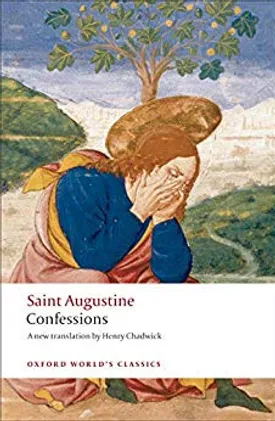Saint Augustine
Saint Augustine, widely regarded as the most influential Christian thinker of the early Church and one of the most important theologians in Western history, was born in 354 CE in Thagaste (now Souk Ahras, Algeria). His father Patricius was a pagan and his mother, Monica, a devout Christian. Although Augustine was baptized as an infant, his religious upbringing was one of study and debate rather than practice.
At the age of 17, Augustine moved to Carthage, where he lived a life of hedonism and studied rhetorical, literary and linguistic skills. During this time he read the works of Cicero and joined the Manichean sect which beliefs blended elements of Christianity and Zoroastrianism. It was here that he also fathered a son, Adeodatus, with a long-term mistress named Faustina.
At the age of 28, he got a teaching post in Milan, where he converted from Manicheism to Neoplatonism, then, two years later, converted to Catholicism. Soon after, he returned to Tagaste and joined a religious community. He was then ordained a priest and went on to become the Bishop of Hippo in 396.
Throughout his life, Augustine wrote extensively on theological topics, especially the role of faith, the nature of evil, and the relationship between the Church and the State. His most famous works, such as 'Confessions', 'City of God' and 'On the Trinity', are seen as foundational texts in the development of Western Christianity.
Confessions is a spiritual autobiography which tells of Augustine's life leading up to his conversion to Catholicism. In it, he describes how he had to battle and ultimately overcame the temptations of paganism. This work presents his own Christian philosophy, which emphasizes the need for individuals to recognize and seek God's authority.
City of God is one of Augustine's most influential works. In it, he discusses the discrepancy between the people who follow the teachings of worldly and corrupt leaders, and those who follow the universal truth of Christianity. Augustine believes that individuals should strive for the city of God, which is an ideal and perfect city, rather than the city of men, which is full of chaos and destruction.
On the Trinity is Augustine's contemplation of the nature of God, with special focus on the Trinity. He explains the three divine persons of the Father, Son, and Holy Ghost in the context of his own development as a Christian thinker. He offers his own interpretation of the relationship between the attributes of God and the Persons of the Trinity.
Overall, Augustine's work has had a lasting impression on both the Church and the world. His ideas have been cited time and time again throughout history, including during the Enlightenment and Reformation, and continue to be relevant to our modern era. His writing marks a major shift in the history of Christian theology - away from the Platonic ideals of the fourth century and towards a view of thought which is enriched by philosophical and theological insights.


